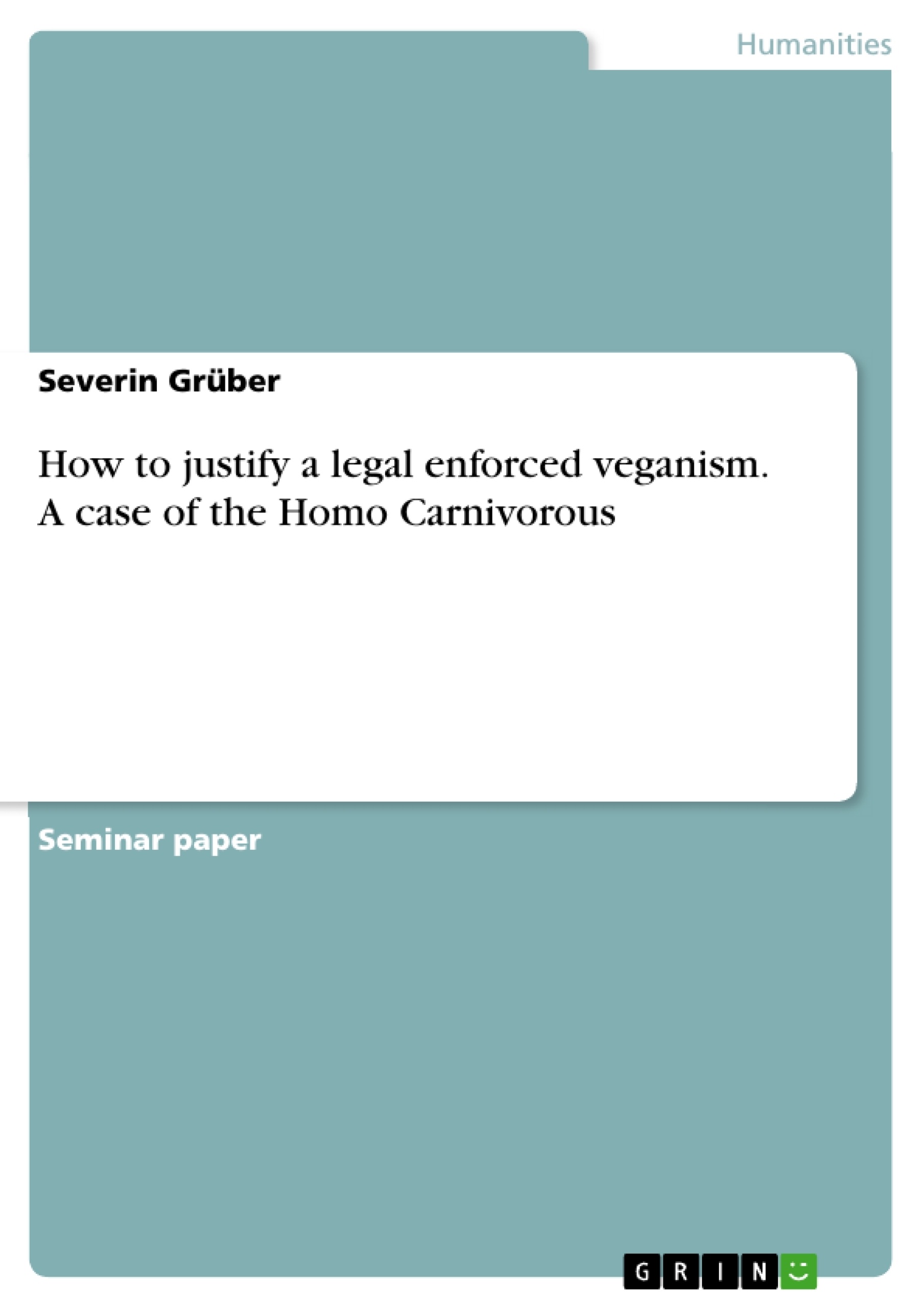For almost 5000 years now, an anthropocentric world view has prevailed in large parts of the world. In general, this view claims that humanity is at the center of the world and enjoys a prominent position in nature. The common division of all living beings into humans and non-humans illustrates this fact. Also, the most religions (e.g. Christianity, Judaism, Islam) describes the human as the pride of creation. However, not only religions propagate this view. Humanism, too, attributes a unique position to mankind.
A consequence of the view that the human being is placed higher, is the disparagement of other living beings. Therefore, since the beginning of anthropocentrism, non-human animals are objectified, exploited as slaves and consumed as food. It is called speciesism, more specific, carnism. Both a "subcategory" of anthropocentrism. However, this approach to the environment is neither ecologically sustainable nor morally justifiable.
Inhaltsverzeichnis (Table of Contents)
- Introduction
- Defining reasons
- Public Justification Principle (PJP)
- Disproving carnist arguments
- Tradition (normal)
- Hedonism
- Health/Biological (necessary)
- Difference in the worth of living beings?
- How do humans see themselves in the world, between other living beings? (natural)
Zielsetzung und Themenschwerpunkte (Objectives and Key Themes)
This paper explores the possibility of legally enforced veganism, aiming to provide a normative justification for prohibiting the consumption of animal products. It delves into the reasons why a state might be justified in enacting such a ban, examining the arguments of carnists and challenging their justifications.
- Public Justification Principle (PJP)
- Carnist arguments for meat consumption
- Moral implications of speciesism and carnism
- Animal rights and the ethical treatment of non-human animals
- The concept of public reason in political philosophy
Zusammenfassung der Kapitel (Chapter Summaries)
The introduction sets the stage for the paper, highlighting the anthropocentric worldview and its historical influence on the exploitation of non-human animals. It introduces the concept of carnism and its inherent flaws, particularly its lack of ecological and moral sustainability.
Chapter II, "Defining reasons," delves into the Public Justification Principle (PJP) and its role in justifying coercive laws. It defines the concept of public reason, outlining the criteria for sufficient reasons to be accepted by a reasonable public.
Chapter III, "Disproving carnist arguments," dissects several common justifications for carnism. It analyzes arguments based on tradition, hedonism, health and biological necessity, and the inherent difference in the worth of living beings. This chapter challenges the legitimacy of these arguments, highlighting their flaws and contradictions.
Schlüsselwörter (Keywords)
The core keywords of this paper encompass the concepts of public reason, animal rights, speciesism, carnism, anthropocentrism, and justifications for legal enforced veganism. It explores the moral and philosophical dimensions of the human-animal relationship, challenging traditional views and advocating for a more ethical and sustainable approach to animal consumption.
Frequently Asked Questions
Can legally enforced veganism be justified?
The paper explores normative justifications for prohibiting animal product consumption, challenging traditional anthropocentric views.
What is the "Public Justification Principle" (PJP)?
The PJP is a concept in political philosophy used to justify coercive laws based on reasons that a reasonable public can accept.
What is "carnism"?
Carnism is described as a subcategory of anthropocentrism, representing the invisible belief system that conditions people to eat certain animals.
How does the paper address arguments based on tradition?
The author dissects and disproves common carnist arguments that claim meat consumption is "normal," "necessary," or "natural."
What are the moral implications of speciesism?
The paper argues that speciesism leads to the objectification and exploitation of non-human animals, which is neither ecologically sustainable nor morally justifiable.
Does humanism play a role in this discussion?
Yes, the text notes that humanism, like many religions, often attributes a unique and superior position to mankind, contributing to the disparagement of other living beings.
- Quote paper
- Severin Grüber (Author), 2019, How to justify a legal enforced veganism. A case of the Homo Carnivorous, Munich, GRIN Verlag, https://www.grin.com/document/611405



